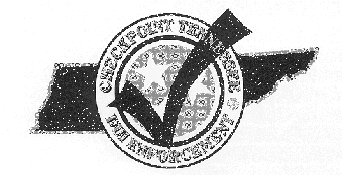















Traffic Tech #184: Sobriety Checkpoints Save Lives: Checkpoint Tennessee Reduces Alcohol Fatalities |
|---|
|

Number 184 December 1998
SOBRIETY CHECKPOINTS SAVE LIVES
CHECKPOINT TENNESSEE REDUCES ALCOHOL FATALITIES
Sobriety checkpoints have long been known to be an effective impaired driving enforcement method. However, until recently, checkpoints have generally only been implemented in the United States (U.S.) on a local level. In 1994, Tennessee, cooperating with the National Highway Traffic Safety Administration (NHTSA), initiated a statewide impaired driving checkpoint program labeled "Checkpoint Tennessee." The Tennessee Highway Patrol and local law enforcement agencies provided the personnel for the checkpoints using existing resources. NHTSA funded the purchase of equipment and the evaluation of the program, conducted by Mid-America Research Institute.

Checkpoints Held every Weekend
Several checkpoints were conducted throughout the state every weekend for a year using specially equipped vans with generators, lights, cones, signs, video taping, and evidential breath testing equipment. Officers used passive alcohol sensors mounted in flashlights to detect impaired drivers. On five weekends during the project year, checkpoints were scheduled in each of the 95 counties in the state. By necessity, not all of these involved as many officers, or as much equipment per checkpoint, as was typical during other weekends, but they served to reenforce a blitz concept throughout the state.
Highly Visible Publicity
A single television station in each of the five major markets in the state generated publicity in support of the program. They each took on Checkpoint Tennessee as a special project. Hard news coverage from other media outlets, a statewide billboard campaign, and press releases announcing individual checkpoints enhanced this publicity. They followed up each checkpoint by reporting their results. Television, radio, and print media coverage was extensive during the 12 month operations phase of the program.
Checkpoints Get Results
Between April 1, 1994 and March 31, 1995, a total of 882 checkpoints were held, compared to the typical 10 to 15 checkpoints that had been conducted each year for the previous five years. A total of 144,299 drivers passed through these checkpoints with 773 arrested for driving under the influence of alcohol (DUI). An additional 201 drivers were arrested for drug violations and 84 for youth offender violations. Thirty-five felony arrests were made, 49 weapons were seized, 1,517 drivers were cited for safety belt or child restraint violations, and 7,351 received other traffic citations.
Alcohol-Related Fatalities Down for the Next Two Years
Time series analyses were used to determine the effects of the checkpoint program on traffic fatalities. The results showed a statistically significant effect for the checkpoint program amounting to a reduction of about nine alcohol-impaired driving fatal crashes per month.
This was a 20.4 percent reduction over the projected number of impaired driving fatal crashes that would have occurred with no intervention.
This effect was still present 21 months after the initial year. To ensure that this effect was related to Checkpoint Tennessee and not to a general trend, data from five surrounding states were also analyzed -- those states showed no significant reduction in impaired-driving fatalities during the project time period.
Public Support High
Surveys were conducted throughout the project and indicated that over 90 percent of drivers supported the program.
The Tennessee program is important because it resulted in decreased alcohol-related traffic fatalities with relatively low implementation costs. The total cost of the two-year project, including planning, implementation, and evaluation, was $925,000, with federal funding at $450,000 and state funding at $475,000.
The State of Tennessee has elected to continue with the checkpoints, although not at the same frequency or intensity as in the first 12 months.
Checkpoints are Effective
Highly visible, highly publicized, and frequent sobriety checkpoints conducted on a statewide basis appear to be a viable and effective deterrent to impaired driving. Other states, where constitutionally allowed, should consider implementing statewide programs.
HOW TO ORDER
For a copy of An Evaluation of Checkpoint Tennessee: Tennessee's Statewide Sobriety Checkpoint Program (24 pgs plus appendices), write to the Office of Research and Traffic Records, NHTSA, NTS-31, 400 Seventh Street, S.W., Washington, DC 20590, or send a fax to (202) 366-7096, or download from NHTSA's web site http:/www.nhtsa.dot.gov Jim Fell was the project manager for this contract.
U.S. Department
of Transportation
National Highway
Traffic Safety
Administration 400 Seventh Street, S.W. NTS-31
Washington, DC 20590
Traffic Tech is a publication to disseminate information about traffic safety programs, including evaluations, innovative programs, and new publications. Feel free to copy it as you wish. If you would like to receive a copy contact:
Linda Cosgrove, Ph.D., Editor, Evaluation Staff
Traffic Safety Programs
(202) 366-2759, fax (202) 366-7096
mailto:lcosgrove@nhtsa.dot.gov
